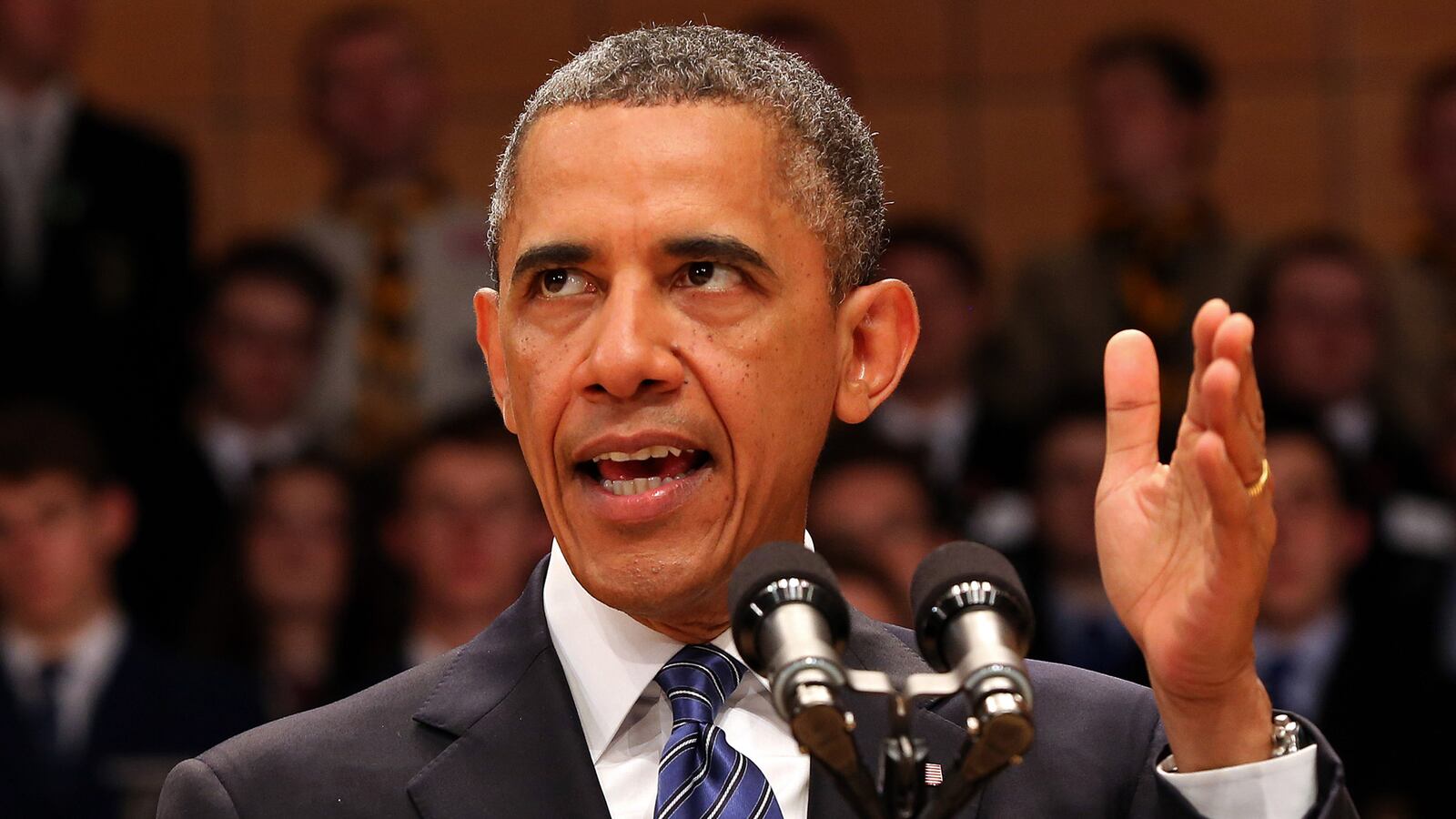President Obama has a problem: the Teflon’s worn off.

That’s the clear conclusion of a new CNN/Opinion Research poll (PDF) showing the government-surveillance scandals taking a real toll on the president’s popularity—particularly with the younger voters who have been among his staunchest supporters. In just one month, support for the president among voters under age 30 plummeted by 17 points.
Perhaps the most devastating poll number, though, is the reversal of perception on what has been one of this president’s core characteristics: honesty and trustworthiness. Around three in five voters have consistently seen Obama possessing these traits, meaning that even voters who didn’t approve of his job performance saw him as an essentially honest guy and a trustworthy chief executive. No more. On this measure, too, the president is underwater at 49 percent—a nine-point drop.
Political independents are also souring on Obama, with just 37 percent approving of his job performance, a 10-point drop. But because the independent voter cohort has moved right in the wake of the Tea Party movement, we see a continued split between independents and self-described moderate voters, 53 percent of whom still approve of the job the president is doing. The support of centrist voters is President Obama’s life preserver, stopping him from going underwater entirely.
Given that the president’s overarching goal of effective and efficient progressive governance, it has to hurt when only 47 percent of Americans now believe he can “manage the government effectively” and just 42 percent say Obama generally shares their view on the size and power of government. These results might give Chris Christie and Rand Paul hope about their 2016 prospects presenting themselves as the balance to eight years of Obama.
One poll shouldn’t be seen as determinative, but this poll could be a leading indicator and it should cause concern in the West Wing. Right now, only 35 percent of Americans approve of the way Obama is handling government surveillance. That’s lower than the 39 percent of Americans who approved of Bush’s approach to the issue back in 2006, just months before Republicans lost control both houses of Congress. Moreover, 43 percent now say the White House has “gone too far” in terms of restricting people’s civil liberties to fight terrorism, more than the 39 percent who felt the same way about the Bush-Cheney administration in 2006.
To some extent, Obama is paying the cost of high expectations. Hypocrisy is the unforgivable sin in politics, and though Obama has been consistently hawkish on the counterterrorism front, there were reasonable expectations that he would reign in some of the excesses of the Bush-Cheney era. Instead, many policies have continued and some have been expanded, creating a blowback that the president will need to address in actions more than words.
The strangest and perhaps most concerning aspect of the poll is that a majority of Americans seem more or less resigned to government intrusions into their privacy, and even supportive of the measures if they improve security: 66 percent said the Obama administration was right to gather and analyze Internet data (and in a rare triumph for perspective, 58 percent believe that their data was stored but not analyzed while only 8 percent believe the government is actively using the data to investigate them).
The portrait that emerges from this poll is a president who promised change but delivered more of the same when it comes to surveillance of American citizens. That broken promise leaves a wound that does not easily heal. Beyond the administration’s self-interest, there is near-term political danger for the nation if conservatives use this new evidence of weakness to argue against cooperation with the administration on issues like immigration reform, a tactic that would further solidify citizens’ built-up cynicism about and frustration with gridlock in Washington.
Bottom line: this latest poll is the clearest sign yet that the second-term scandals—especially those involving government surveillance—are hurting the president and his administration. Obama will need to take bold action to remedy what threatens to be a bedrock shift in perception against him. It’s time that he gets back in touch with his inner constitutional-law professor and reconciles that part of himself with his more immediate responsibility as commander in chief.






